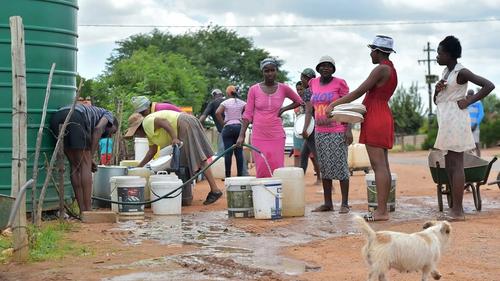411
Joburg Water’s Crackdown on Illegal Connections Sparks Debate Over Fairness and Basic Rights

Johannesburg Water has announced an intensified mass disconnection programme targeting illegal water connections, particularly in informal settlements. This move comes as the utility grapples with an alarming 46% non-revenue water (NRW) rate, which equates to almost half of the water it purchases from Rand Water being unaccounted for through leaks, theft, or unbilled usage.
The Numbers Behind the Crisis
For every 100 liters of water Johannesburg Water procures, 46 liters fail to generate revenue. Breaking this down:
- 25% of NRW is due to physical losses like leaks and pipe bursts.
- 9.7% stems from theft and billing errors.
- 11.7% is authorized but remains unbilled.
This systemic issue has left paying residents enduring intermittent or prolonged water shortages, amplifying public frustration.
Targeting Informal Settlements
Joburg Water has identified informal settlements as significant contributors to water losses, citing deteriorated infrastructure and unauthorized connections. In areas like the Deep South (Ennerdale, Lenasia, Orange Farm, and Lawley), disconnections have reportedly doubled reservoir levels, improving water distribution.
However, the strategy has sparked outrage among civil society and local leaders, who argue that:
- Desperation drives illegal connections: Residents of informal settlements often connect illegally due to inadequate access to basic services.
- Systemic failures are overlooked: Critics highlight the city’s responsibility to ensure adequate water access and repair failing infrastructure.
Criticism and Pushback
Community leaders and activists have called for greater transparency and equity in addressing water losses:
- Maureen Mnisi, a DA councillor, condemned illegal connections but emphasized that government corruption and neglect have forced residents into desperate measures.
- Dr. Ferial Adam, of WaterCAN, questioned whether Joburg Water was applying the same rigor to large-scale water users or delinquent municipal buildings.
Adam further noted that many of the city’s 42 reservoirs are leaking, demanding attention alongside illegal connection disconnections.
Challenges in Alternative Water Supply
To mitigate the impact of disconnections, Joburg Water has committed to deploying water tankers in affected areas. However, residents have raised concerns about:
- Safety: Water collection points and chemical toilets are unsafe, especially at night.
- Health risks: Poorly maintained tanks reportedly lead to contaminated water, causing health issues such as diarrhea.
In a memorandum delivered in December, residents demanded improved maintenance and the removal of defective water tanks, highlighting the lack of sustainable water solutions.
A Call for Accountability
Critics are urging Joburg Water to prioritize auditing its own operations and addressing leaks in municipal infrastructure before targeting vulnerable communities.
“Water is a fundamental right,” Mnisi said, calling on the utility to engage with residents, install standpipes, and avoid the unrest caused by previous disconnection efforts.
Joburg Water’s five-year Water Conservation and Demand Management Strategy aims to reduce water demand by 37,000 megaliters annually. The plan includes repairing leaks, upgrading meters, improving pressure management, and replacing aging infrastructure.
However, activists stress the need for a balanced approach that does not disproportionately affect informal settlements.
“Addressing non-revenue water losses is critical, but trust must be rebuilt,” Adam said. “Joburg Water must collaborate with communities to find sustainable solutions and avoid perpetuating inequality.”
Joburg Water faces the dual challenge of tackling its staggering non-revenue water losses while ensuring equitable water access for all residents. As the city moves forward with its disconnection programme, it must balance immediate interventions with long-term infrastructure improvements and community engagement.
For Johannesburg’s water crisis to truly be addressed, a more inclusive and transparent strategy is essential.
Follow Joburg ETC on Facebook, Twitter and Instagram
For more News in Johannesburg, visit joburgetc.com















